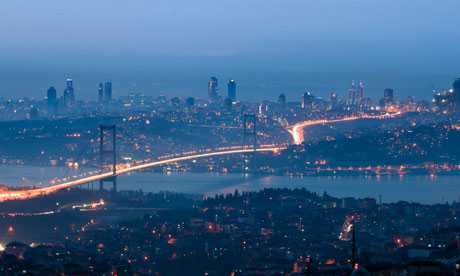Central Asian leaders are known for their absolute power and life-long immunity from prosecution. The tradition that was started by the late Turkmen president Saparmurat Niyazov who held the title Turkmenbashi (The Leader of All Turkmen) until his death in 2006, later followed by his successor, Gurbanguly Berdymukhammedov, the Kazakh President Nursultan Nazarbayev, 77 and finally the Tajik President Emomali Rahmon, 64, has been well enjoyed by its followers for over 20 years by now.
However, the leaders are getting old and the region just might be on the threshold of the new era. The recent death of the Uzbek President Islam Karimov has marked the beginning of inevitable changes and has made the issue a public debate. The Central Asia is of great interest of its strong neighbors: Turkey, Iran, Russia and, finally, China. Each of the country is eagerly waiting to gain its own geopolitical goals and ambitions there. It’s only a matter of time now. In the long-term scenario, as seen by political analysts, China will most likely strengthen its political and economic development, while Turkey will likely become more stable economically. Finally, Iran might recover its power due to its nuclear program agreement.
The key factor might be played by migrant workers. Though China is the huge labor pool that offers low-cost migrant workers it still cannot compete with Russia when it comes to the Central Asia: most of the people’s income in this region is coming from Russia as there are more jobs to Central Asian migrant workers than in any other country. Nevertheless, the competition between Turkey and Iran will most likely continue to grow. Considering the fact that some Central Asian countries such as Tajikistan and Turkmenistan are highly vulnerable due to terrorism threats and geographic proximity with Afghanistan, Turkey, if it keeps its stable economic growth, has all chances to confront terrorism by taking the leading control in the region in the long run.
Meanwhile, the current Central Asian leaders keeping in mind all the dangers coming to them struggle to extend their authoritarian leadership as longer as possible by empowering their children and by filling all the important government positions with their family members. One of the brightest examples of such practice may be found in Tajikistan. Earlier last year Emomali Rahmon’s daughter, Ozoda Rahmon has been appointed as his chief of staff while her husband, Jamoliddin Nuraliev, the First Deputy Chairman of the National Bank of Tajikistan is one of the strongest candidates for the President elections in 2020 along with the President’s son, Rustam Rahmon. But due to the recent scandal that put Jamoliddin Nuraliev in the spotlight as he has been regularly seen in public together with Takhmina Bagirova in Austria (where Bagirova lives) and other countries during the holiday season, Nuraliev might soon be off the game leaving Rustam Rahmon the only real candidate for the President. But whether the current leaders’ successors be able to be as powerful as their fathers or their presidency will mark the end of the authoritarian power in the region the Central Asia’s new wave of development is inevitable. As the pro-Moscow leaders will go, the region this will most likely be the platform of disputes between Iran, Turkey and China.

